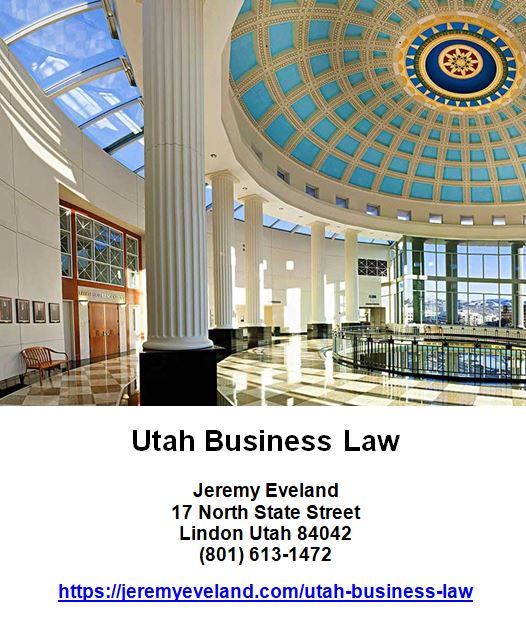Utah, the crossroads of business and legal matters, is known for its robust economy and entrepreneurial spirit. However, navigating the intricacies of Utah’s usury laws can be a daunting task for businesses seeking financial growth. In this informative article, you will gain a comprehensive understanding of Utah’s usury laws, enabling you to make informed decisions and protect your business from potential legal pitfalls. With expert guidance and a deep dive into the legal framework, you will be equipped to maneuver within the boundaries set by these laws and ensure the financial success of your business.
Overview of Usury Laws in Utah
Definition of usury
Usury refers to the practice of charging an excessive or unlawfully high rate of interest on a loan or any form of credit. Usury laws aim to protect borrowers from exploitative lending practices and ensure fair and reasonable interest rates.
Historical background of usury laws
The concept of usury has been present in legal systems for centuries, with the intent of preventing unethical lending practices. Utah’s usury laws can be traced back to the state’s founding in the mid-19th century, when regulations were established to protect individuals from usurious interest rates.
Key Provisions of Utah’s Usury Laws
Maximum allowable interest rates
Under Utah’s usury laws, the maximum allowable interest rates vary depending on the type of loan or credit transaction. For most consumer loans, the maximum annual interest rate is 10%. However, in certain cases, such as when the loan is secured by real property, a higher interest rate may be permitted.
Penalties for usury violations
Violating Utah’s usury laws can have serious consequences. Individuals or businesses found guilty of usury may face civil liability, which can result in the repayment of excessive interest charges to the borrower. Additionally, usury violations can also lead to criminal penalties, including fines and imprisonment.

Understanding the Impact of Usury Laws on Business
Applicability to business loans
Utah’s usury laws generally apply to all types of loans, including those extended to businesses. Whether it is a small business loan or financing for a larger corporate venture, lenders must ensure that the interest rates charged comply with the state’s usury regulations.
Alternative financing options
To avoid violating usury laws, businesses have several alternative financing options. They can explore avenues such as venture capital, angel investors, crowdfunding, or even seek assistance from community development financial institutions that offer loans at affordable rates.
Exemptions from Usury Laws in Utah
Exempt entities and types of transactions
Certain entities and transactions are exempt from Utah’s usury laws. For example, banks and credit unions regulated by the state or federal authorities are generally exempt. Other exemptions may include loans made by agricultural credit corporations, industrial banks, and certain non-profit organizations.
Requirements for claiming exemption
Entities seeking exemption from usury laws must meet specific requirements outlined by the law. This may include obtaining proper licensing or certification, adhering to specific loan conditions, or limiting the interest rates charged to borrowers.
Effects of Violating Utah’s Usury Laws
Civil liability
A violation of Utah’s usury laws can result in civil liability for the lender. If a borrower can prove that the lender charged an unlawfully high interest rate, they may be entitled to sue for damages and seek repayment of the excessive interest charged.
Criminal penalties
In addition to civil liability, individuals or businesses found guilty of usury violations in Utah may also face criminal penalties. These penalties can include fines and imprisonment, depending on the severity of the violation and the amount of money involved.
Enforcement and Remedies for Usury Violations
Role of regulatory agencies
Utah’s usury laws are enforced by various regulatory agencies, including the Utah Department of Financial Institutions. These agencies monitor lending activities and investigate complaints of usury violations. They have the authority to take legal action against lenders found to be in violation of usury laws.
Legal recourse for borrowers
If a borrower believes they have been subjected to usurious lending practices, they have legal recourse to seek justice. They can file complaints with regulatory agencies, take legal action against the lender, or seek the assistance of an experienced business lawyer who specializes in usury law.

Usury Laws vs. Predatory Lending
Distinguishing factors
Usury laws in Utah and predatory lending practices are not one and the same. Usury laws focus on controlling interest rates, while predatory lending refers to unethical practices that exploit vulnerable borrowers. Predatory lending typically involves deceptive tactics, hidden fees, or excessive penalties, which are not allowed under Utah’s usury laws.
Consumer protection measures
Utah’s usury laws are designed to protect borrowers from unfair lending practices. These laws ensure that lenders cannot exploit borrowers by charging exorbitant interest rates or engaging in deceptive practices. By enforcing usury laws, Utah aims to create a fair lending environment and safeguard the interests of individuals and businesses.
Considering Usury Laws in Business Planning
Importance of compliance
For businesses operating in Utah, it is crucial to understand and comply with usury laws to avoid legal consequences. Complying with these laws helps businesses build a positive reputation, maintain customer trust, and protect themselves from costly legal battles. It is essential for businesses to have proper legal guidance to ensure full compliance with usury laws.
Seeking legal advice
Navigating usury laws can be complex, especially for businesses. Seeking legal advice from a knowledgeable business lawyer can help ensure compliance with usury laws. A business lawyer can provide guidance on interest rate regulations, exemptions, and assist in developing loan agreements that adhere to usury laws.

The Role of a Business Lawyer
Why you need a business lawyer
A business lawyer specializing in usury laws can be an invaluable asset for your business. They possess a deep understanding of usury regulations, exemptions, and can provide guidance on complex legal matters. A business lawyer can protect your interests, ensure compliance, and offer representation in case of usury law disputes.
Services provided by business lawyers
Business lawyers can assist with various aspects of usury law compliance, including reviewing loan agreements, assessing interest rates, advising on exemptions, and representing businesses in legal proceedings related to usury violations. They can also provide general legal counsel and help businesses navigate other legal issues they may encounter.
FAQs
1. What is the maximum interest rate allowed under Utah’s usury laws?
The maximum interest rate allowed under Utah’s usury laws for most consumer loans is 10% annually. However, in certain cases, such as loans secured by real property, higher interest rates may be permitted.
2. Are there any exemptions for small business loans?
Utah’s usury laws do not specifically exempt small business loans. The regulations apply to all types of loans, regardless of the size of the business. However, certain entities, such as banks and credit unions, may be exempt from usury laws.
3. Can individuals be held personally liable for usury violations?
In Utah, individuals who engage in usurious lending practices can be held personally liable for usury violations. If found guilty, they may face civil liability, including repaying excessive interest charges to the borrower, as well as potential criminal penalties.
4. How can a business lawyer help ensure compliance with usury laws?
A business lawyer specializing in usury laws can provide comprehensive guidance and assistance in ensuring compliance with Utah’s regulations. They can review loan agreements, assess interest rates, advise on exemptions, and represent businesses in legal proceedings related to usury violations.
5. What are the potential defenses against usury claims?
Potential defenses against usury claims may include demonstrating that the interest rate charged was not excessive or that the transaction falls within exempt categories outlined by Utah’s usury laws. In some cases, challenging the validity of the loan agreement or proving that the borrower was aware and willingly entered into the transaction may also be potential defenses.








